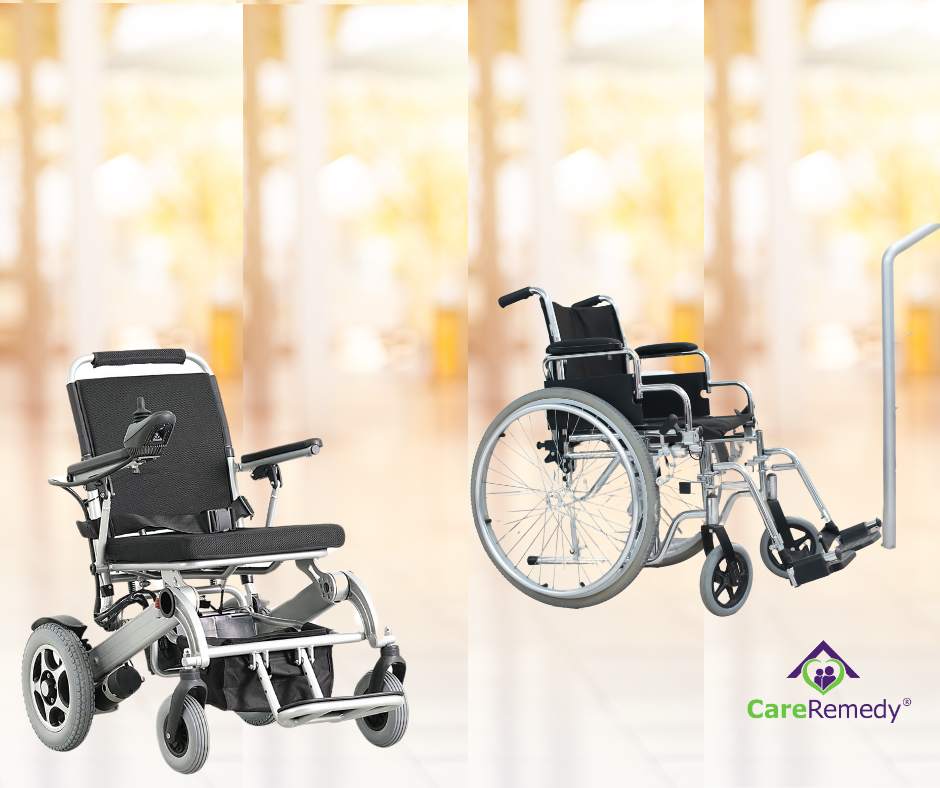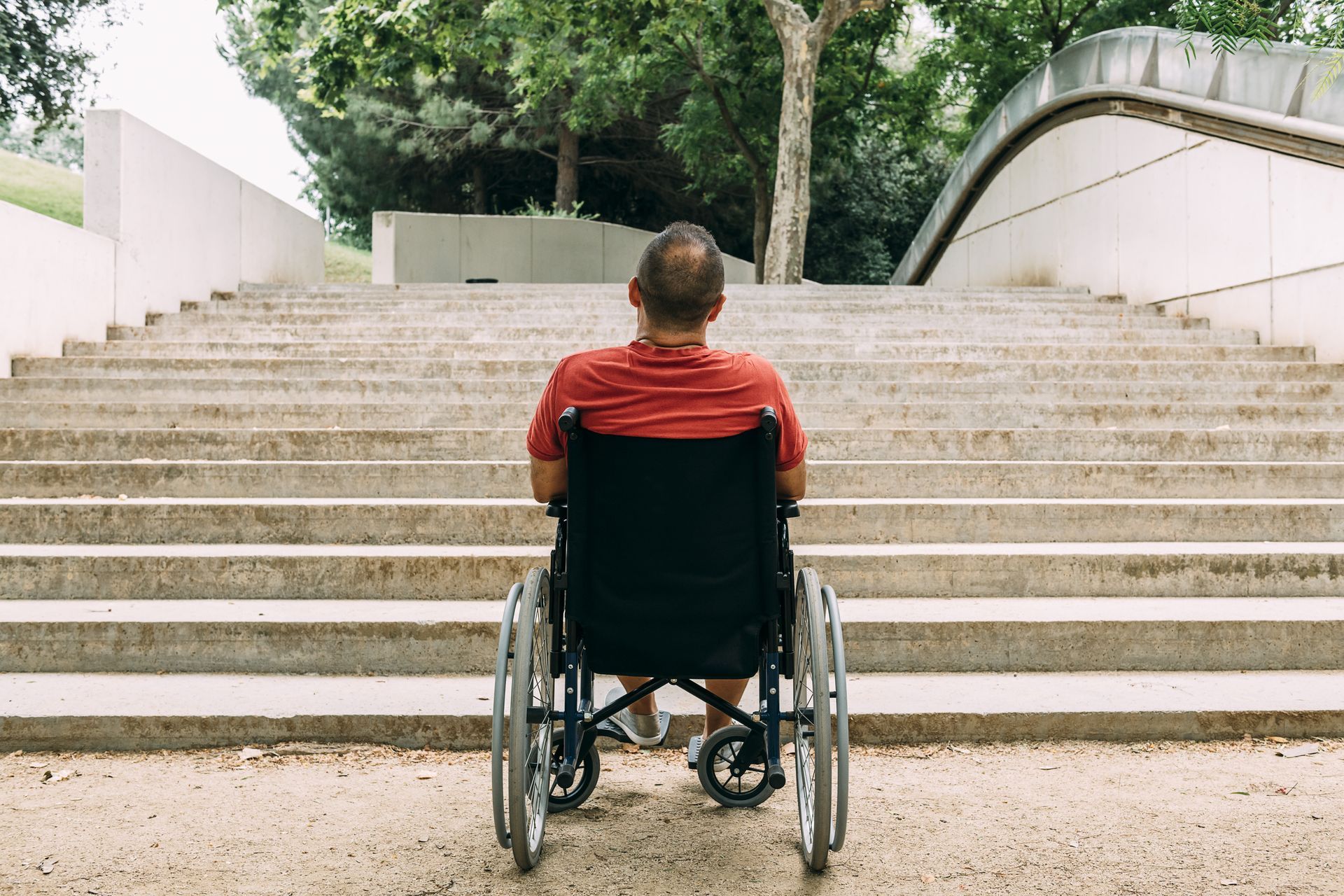781-9578076
The Ultimate Wheelchair Guide: Choosing the Right Type, Maintenance Tips, and Must-Have Accessories
Why Choosing the Right Wheelchair Matters

For millions of individuals, a wheelchair is more than just a mobility aid—it’s a key to independence, comfort, and improved quality of life. Whether you need a wheelchair temporarily or for long-term use, selecting the right one is essential.
With over 3.5 million wheelchair users in the U.S., many of whom are seniors, understanding the different types, proper maintenance, and useful accessories can greatly enhance daily living.
If you're a senior, a caregiver, or someone considering a wheelchair, this guide will help you make an informed decision.
Do You Need a Wheelchair? Signs to Consider
A wheelchair should enhance mobility, not restrict it. If you experience any of the following, a wheelchair may be a beneficial option:
- Frequent falls – Falling can be dangerous, especially for seniors. If balance issues lead to repeated falls, a wheelchair can provide stability.
- Increased dependence on a walker – If a walker no longer provides enough support, transitioning to a wheelchair may be necessary.
- Pain or weakness while walking – If walking short distances causes pain, even with support, a wheelchair can reduce discomfort.
- Coordination and balance difficulties – Neurological conditions such as Parkinson’s disease, multiple sclerosis, or Alzheimer’s can impact stability. A wheelchair can help prevent injuries and make daily activities easier.
Consulting a doctor is the first step in determining whether a wheelchair is the right solution. In many cases, insurance may cover all or part of the cost if prescribed for medical reasons.
Types of Wheelchairs: Which One is Right for You?
Not all wheelchairs are the same. Choosing the right type depends on your needs, mobility level, and lifestyle.
1. Manual Wheelchairs
Manual wheelchairs are operated by the user or pushed by a caregiver. They have large rear wheels and are often lightweight, making them easy to transport.
✔ Best for: Individuals with upper body strength who can propel themselves or those who need occasional wheelchair use.
Key Features:
- Foldable options for easy storage and transport.
- Lightweight frames for maneuverability.
- Outdoor-friendly versions with all-terrain wheels available.
2. Transport Wheelchairs
Transport wheelchairs have smaller wheels and must be pushed by a caregiver. They are ideal for short-term use, hospital visits, and appointments.
✔ Best for: Individuals who require assistance with mobility and are not able to operate a manual wheelchair independently.
Key Features:
- Lightweight and compact design.
- Easy to maneuver in small spaces.
- Folds up quickly for storage or travel.
3. Power (Electric) Wheelchairs
Power wheelchairs are battery-operated and controlled by the user. They are designed for individuals who lack the upper body strength to operate a manual wheelchair.
✔ Best for: Long-term wheelchair users or those with limited mobility due to medical conditions.
Key Features:
- Operated with a joystick or specialized control system.
- Comfortable seating for extended use.
- Requires battery charging; check battery life before purchasing.
Wheelchair Maintenance Tips for Longevity
A well-maintained wheelchair ensures safety, comfort, and longevity. Just like a car, regular maintenance is crucial.
Basic Maintenance Checklist:
- Check the tires – Ensure they are properly inflated and inspect for wear or damage.
- Test the brakes – Confirm they are working properly for safety.
- Inspect casters – The front wheels should swivel smoothly without sticking.
- Lubricate moving parts – Apply lubricant to axles and folding joints for a smoother ride.
- Tighten nuts and bolts – Periodically check for loose hardware and secure it as needed.
- Charge the battery (for power wheelchairs) – Keep the battery fully charged and test its longevity.
- Clean regularly – Wipe down the frame, wheels, and seat to remove dust and debris.
- If unusual noises or reduced performance occur, it’s best to consult a professional for repairs.
Must-Have Wheelchair Accessories for Comfort & Convenience
Wheelchair accessories can greatly improve comfort and usability. Here are some essential add-ons:
1. Cushions & Back Support
- Gel or foam cushions help prevent pressure sores and improve posture.
- Lumbar support can enhance comfort for prolonged sitting.
2. Torso Support & Anti-Tip Devices
- Torso support straps help maintain proper posture.
- Anti-tip devices prevent tipping on ramps or uneven terrain, ensuring safety.
3. Cup & Phone Holders
- Easily attachable to wheelchairs, these holders keep drinks and mobile devices within reach.
4. Mobility Tote Bag
- A handy storage bag attaches to the wheelchair, allowing users to carry essentials like medications, glasses, or personal items.
5. Weather Protection
- Wheelchair covers and lap blankets provide warmth and protection from the elements when traveling outdoors.
Final Thoughts: Choosing the Right Wheelchair for Your Needs
Finding the perfect wheelchair involves considering personal mobility needs, lifestyle, and comfort. Whether you need a manual, transport, or power wheelchair, the right choice can help you regain independence and improve your quality of life.
At Care Remedy, we understand how important mobility is for seniors and individuals with disabilities. That’s why we provide expert guidance and transportation solutions to ensure you or your loved one can get to appointments, errands, and outings comfortably.
Need assistance? Contact Care Remedy today to learn how we can support your mobility and transportation needs.
Wheelchair Transportation, Senior Care & More!
CONTACT US
Office: 781-957-8076
Fax Number : (978) 409-3374
100 TradeCenter, Suite G-700, Woburn, MA 01801
USEFUL LINKS
SERVICES
STAY INFORMED
Subcribtion
We will get back to you as soon as possible
Please try again later


